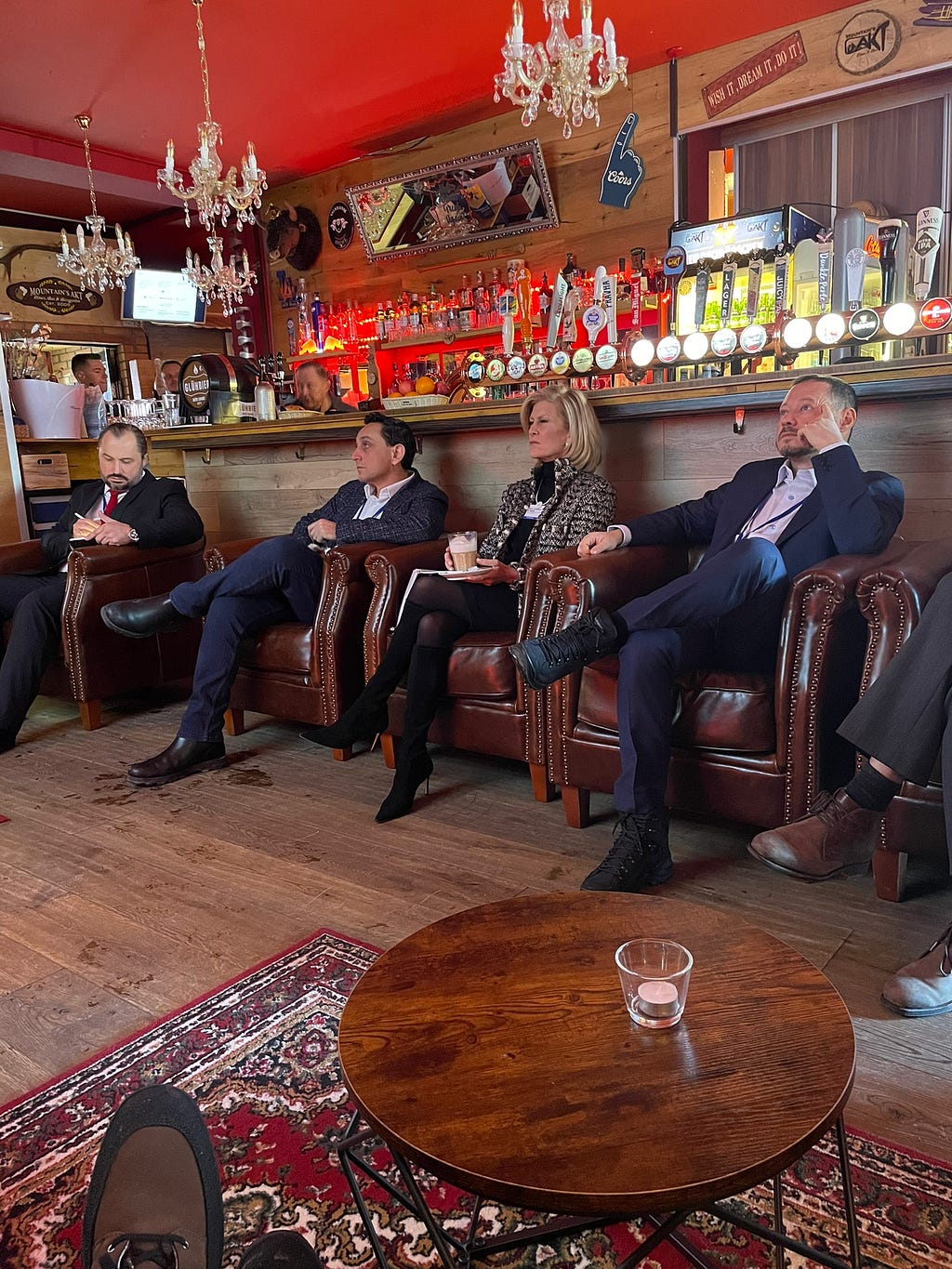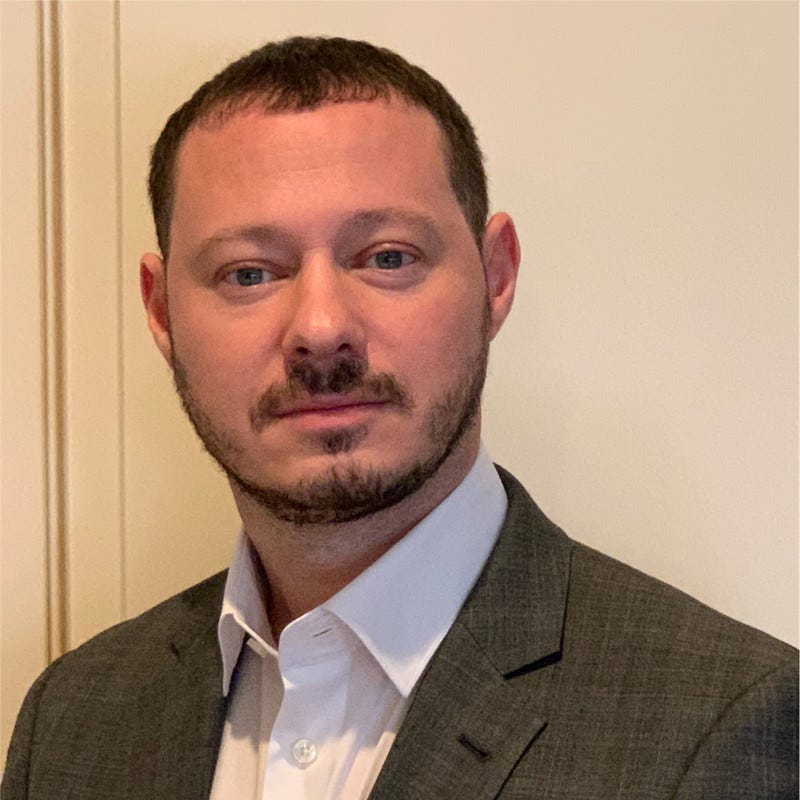Creating a Culture of Courage: Roman Vintfeld of BrainChain AI On How Authenticity Benefits People and Profits in the Workplace
An Interview With Vanessa Ogle
Be transparent — Proper communication is a timeless asset of effective leadership. Transparency will fast-track your ability to foster a more open culture, as it will empower your workers by keeping them apprised and allowing them to feel valued.
In today’s social media filled, fast-paced world, authenticity in the workplace and in our personal lives has become more difficult to come by. Business leaders must focus on the bottom line of profits and corporate success, but does that have to be at the expense of the authenticity of their employees? I believe it is quite the opposite. I know from my own experience that a culture of authenticity allows the hiring of a team that will bring their all to the workplace. That fosters innovation, creativity and a level of success that few companies dream of. Yet, fostering an environment where individuals feel secure enough to express their true selves remains a challenge. The importance of authenticity cannot be overstated — it is the foundation of trust, innovation, and strong relationships. However, creating such a culture requires intention, understanding, and actionable strategies. As part of this series, we had the pleasure of interviewing Roman Vintfeld.
Roman Vintfeld is a longstanding, seasoned business executive based in Puerto Rico. Throughout his career, Roman has become adept at working with advanced technological resources and solutions — specifically, artificial intelligence (AI) and machine learning (ML) — to grow and scale supply chain, marketing, and sales activity.
Roman is the Chief Executive Officer (CEO) of BrainChain.AI, a company striving to revolutionize supply chain management and logistics through AI and ML. BrainChain.AI uses these technologies to reduce supply chain disruption and help companies deliver commodities to global brands and governments quickly and efficiently.
A longtime philanthropist, Roman Vintfeld has leveraged his professional position for charitable good. He is a Co-Founder of Worldwide Friends, a U.S.-based 5013c emergency response organization providing crucial aid for ongoing international conflicts.
Thank you so much for joining us in this interview series. Before we dive into our discussion, our readers would love to “get to know you” a bit better. Can you share with us the backstory about what brought you to your specific career path?
Thank you. I appreciate the opportunity.
Growing up, I became a big subscriber of a simple yet timeless fact: anyone can make a difference in this world if they put in the necessary work. This underlying principle has driven me in all I have done, both professionally and philanthropically; it led me to become involved in the ambitious technology sector as it pertains to supply chain infrastructure and protocol, and now, with BrainChain.AI, I feel that we are carrying on those values in aiding this vital and increasingly relevant sector. On the philanthropic side, our work with Worldwide Friends is making an ongoing difference for those rendered most vulnerable worldwide, and we are proud to uphold our support for those individuals. These involvements reflect my enduring goals since becoming a professional in this field, and I’m excited to see what we can accomplish in the future.
Can you share the most interesting story that happened to you since you started your career?
There are many stories and developments that have made my career interesting to date, but broadly speaking, I’d say Worldwide Friends’ support of Ukraine during its ongoing conflict with Russia. Our charitable work in Ukraine has resulted in the evacuation of over 30,000 people, the housing of over 20,000 people, and the donation of over 200,000 first aid kits — so that has been a very interesting and rewarding experience.
You are a successful individual. Which three character traits do you think were most instrumental to your success? Can you please share a story or example for each?
I would boil my success down to the following traits:
- Confidence — I try to execute ideas as soon as possible, forgoing needless planning periods and lingering fears of failure. In today’s fast-paced, increasingly tech-driven world, I think a big part of success is not being afraid of hypothetical shortcomings — and being equally brave in pivoting your vision if those shortcomings do occur.
- Empathy — As I see it, you should always pair professional success with some form of giving back. In my experience, I have been fortunate to use my position to facilitate aid for those who need it the most, which keeps me inspired and determined in my work each day.
- Mindfulness — I am a big believer in meditation and the lasting importance of living mindfully. You should always be open to the fundamentals of meditation and energy healing, as they can be major assets to your mental health during the work week.
Ok, thank you for that. Let’s now jump to the primary focus of our interview. Can you share a pivotal moment in your career or personal life when being authentic made a significant impact on your success or well-being?
Earlier in my career, I went through a period of bankruptcy, which, unfortunately, led to me having to fire 500 people on a Friday. I then had to hire 100 people the following Monday. This moment was incredibly challenging, but it warranted both authenticity and pragmatism. The best advice I could offer someone in a situation like that is to avoid feeling bad for yourself; it won’t make the issue any better.
What strategies have you found most effective in fostering an environment where employees or team members feel safe to express their true selves, including their ideas, concerns, and aspirations?
It goes back to my earlier point about confident, fearless ideation. I encourage my team to take action on their ideas if they see a solution to a crucial problem; otherwise, we might remain indefinitely at square one. It’s always better to try new things than settle for stagnation.
How do you navigate the challenges that come with encouraging authenticity in a diverse workplace, where different backgrounds and perspectives may sometimes lead to conflict?
Open-mindedness is as vital as authenticity in today’s workplace. You must remain empathetic and open to an increasingly diverse, nuanced workforce, and in my opinion, so long as that value is steadfast, you will foster a healthier environment where authentic, ambitious solutions come easier and more often.

Based on your experience and research, can you please share “5 Ways to Create a Culture Where People Feel Safe to be Authentic?”
I would point to these five points:
- Be transparent — Proper communication is a timeless asset of effective leadership. Transparency will fast-track your ability to foster a more open culture, as it will empower your workers by keeping them apprised and allowing them to feel valued.
- Listen — The best leaders are also adept at absorbing worker feedback. You should take time to hear your team’s ideas, thoughts, and observations, applying this information as much as possible.
- Remain open — Part of being a good listener is staying open to unconventional ideas; these will push the boundaries of your capabilities and create a stronger sense of comfort for workers trying new things.
- Frame the future as an opportunity — To be truly authentic in your ideas, you must also become comfortable with a rapidly changing macroenvironment; this should be a major part of your cultural leadership approach. Encourage workers to see the future as an exciting opportunity rather than a nebulous challenge.
- Prioritize worker wellbeing — Above all, you must look out for your workers at a human level. Otherwise, you will risk creating a toxic, myopic culture incapable of doing anything but alienating your brightest thinkers.
In your opinion, how does authenticity within an organization influence its relationship with customers, clients, or the broader community?
By remaining authentic, your work will speak for itself as you reveal it to the public or your intended space of impact. In a broader relationship sense, authenticity is also an invaluable asset for your audience, stakeholders, and professional community; it keeps you honest and forward-facing as you forge fruitful connections on behalf of your overarching goals.
You are a person of great influence. If you could start a movement that would bring the most amount of good to the most amount of people, what would that be? You never know what your idea can trigger. 🙂
I would say just continuing our work with Worldwide Friends, remaining open to new opportunities to aid those in need. We take much pride in these initiatives, and our ultimate goal is not only to help these communities in their darkest hour — but also to inspire others to take similar action.
How can our readers further follow you online?
They can follow me on LinkedIn or visit my website.
Thank you for the time you spent sharing these fantastic insights. We wish you only continued success in your great work!
About The Interviewer: Vanessa Ogle is a mom, entrepreneur, inventor, writer, and singer/songwriter. Vanessa’s talent in building world-class leadership teams focused on diversity, a culture of service, and innovation through inclusion allowed her to be one of the most acclaimed Latina CEO’s in the last 30 years. She collaborated with the world’s leading technology and content companies such as Netflix, Amazon, HBO, and Broadcom to bring innovative solutions to travelers and hotels around the world. Vanessa is the lead inventor on 120+ U.S. Patents. Accolades include: FAST 100, Entrepreneur 360 Best Companies, Inc. 500 and then another six times on the Inc. 5000. Vanessa was personally honored with Inc. 100 Female Founder’s Award, Ernst and Young’s Entrepreneur of the Year Award, and Enterprising Women of the Year among others. Vanessa now spends her time sharing stories to inspire and give hope through articles, speaking engagements and music. In her spare time she writes and plays music in the Amazon best selling new band HigherHill, teaches surfing clinics, trains dogs, and cheers on her children.
Please connect with Vanessa here on linkedin and subscribe to her newsletter Unplugged as well as follow her on Substack, Instagram, Facebook, and X and of course on her website VanessaOgle.
Creating a Culture of Courage: Roman Vintfeld of BrainChain AI On How Authenticity Benefits People… was originally published in Authority Magazine on Medium, where people are continuing the conversation by highlighting and responding to this story.
